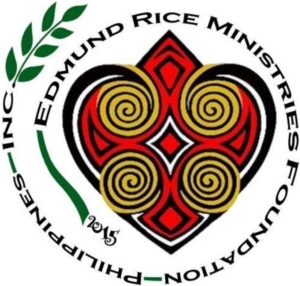Sustainable Community Development (SCD) program: Kabankalan, Negros Occidental | January 2018 to December 2020
Primarily supported by Edmund Rice Foundation Australia (ERFA) together with the assistance of various local partners, the SCD program was anchored on the Rights Based Approach (RBA) and Participatory Community Development. At its core, SCD was developed in recognition that people are the owners of rights and are not merely recipients of charity. Taking on the RBA as its main approach, SCD considered each and every individual as legitimate claimants of rights and a life with dignity and that certain actors in society bears the obligations to respect, protect and fulfil these rights.
With SCD as the overarching program, five (5) key priority focus were established based on community needs which were translated into developmental projects: Formation, Education, Health and Social Care, Livelihood and Environment. Within its program timeline, its services has reached 11 barangays in Kabankalan City, Negros Occidental and project teams has worked with over 38 community groups including the Indigenous Sector in Sitio Tigbao, Himamaylan, Negros Occidental.
Formation:
Working with communities that are hardly reached by government and aid agency programs, the Formation project team has implemented series of community formation activities- focusing on topics related to human rights, leadership and empowerment, understanding community needs, parental care and building a loving relationships among families.
Education:
The Edmund Rice story is about care and compassion for children. ERMFPI has been greatly moved by the profound realization that those organizations that live from and by this story has its moral obligation not to ignore the plights of children in our world. With support from the Assisi Development Foundation, Inc., ERM Kabankalan specifically targeted children coming from the marginalized sector to provide appropriate assistance in their schooling and/or encouraged those who dropped out of school to engage in schooling. In Sitio tigbao, Project team members had to tread 2-3 hours of challenging terrains in order to reach the children from the Indigenous sector to conduct community based learning.
Health and Social Care:
In partnership with Corazon Locsin Hospital, Kabankalan City Health Office, Cataract Foundation and Visayas Hearing Center, ERM Kabankalan facilitated access to consultations and treatments, ear and eye screening, post hospital discharge, counselling and other health related services to over 38 needy community groups across Kabankalan, Negros Occidental.
Livelihood:
Having been able to establish a good working relationship with DTI, Department of Agriculture and several Organic Farming Groups, the Livelihood project under the SCD program was developed to to fulfil the basic human rights of farmers across Kabankalan, to have the means of freeing themselves from poverty through creative and innovative methods of farming. While Negros is primarily rich in agricultural resources, women were also taught alternative liveilhoods such as livestock raising, cooking, dress-making, rug and handicraft making. Such trainings formed part in the strategy of building community resiliency in times of crisis and/or disaster situations where agricultural livelihoods will be negatively impacted.
Environment:
In recognition that caring for the earth is one of the core values of ERMFPI, regular environmental activities such as tree planting, community clean-up drives, Environment Education Trainings (Sanitation, Waste management, Responsible Stewardship of the Earth) and Disaster Preparedness activities were conducted across Kabankalan City. For over 8 years, ERM Kabankalan has trained over a thousand community members including women and children in the effort to lessen the impact of climate crisis.

